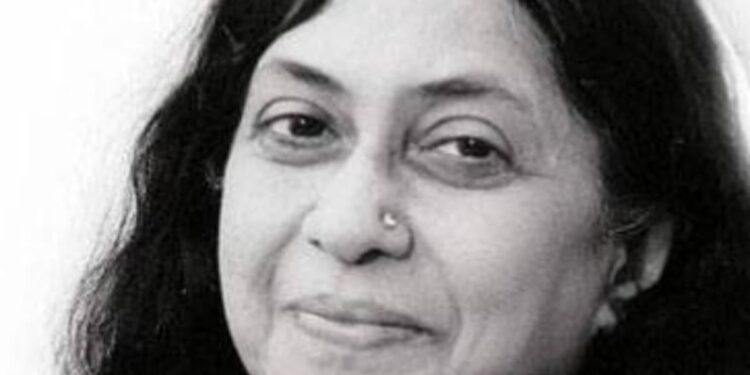Central theme of poem My Grandmother’s House by Kamala Das
“My Grandmother’s House” is a poignant and evocative poem written by Kamala Das, one of India’s most prominent poets in English. The main themes of nostalgia and the longing for one’s heritage and cultural identity are explored in this poetry. Kamala Das adeptly captures her strong bond with her grandmother’s home and her desire to relive her early years through rich pictures, feelings, and sensory aspects.
Nostalgia and Emotional Resonance:
The central theme of “My Grandmother’s House” is nostalgia, which is a sentiment that pervades the entire poem. Kamala Das reminisces about her childhood, a time spent at her grandmother’s house, and the emotions associated with it. This theme resonates with readers on a universal level as most people can relate to the bittersweet feeling of longing for the past and the places and people associated with it.

Readers are moved to great emotional depth by Kamala Das’s words. She describes her grandmother’s home as being “guarded by giant ants,” and she has deep recollections of it. The house evokes strong feelings in people because it represents a haven of love, cosiness, and belonging.
Cultural Identity and Roots:
The poem also explores the theme of cultural identity and roots. Kamala Das, who is known for her honest and sometimes controversial writings, uses this poem to reflect on her cultural heritage. Her grandmother’s house represents a cultural hub, a place where traditions, customs, and values were preserved and passed down through generations.
The use of words like “granite gods,” “we are shouting to make them hear,” and “my grandmother’s house stands still” suggests a connection to cultural and ancestral roots. The house serves as a metaphor for the enduring spirit of tradition and cultural identity. The poet longs to reconnect with her roots, emphasizing the importance of cultural preservation.
Memories and the Passage of Time:
“Memory in this poem is a powerful theme. Kamala Das beautifully captures the idea that memories are like ghosts, haunting the present and reminding us of the past. She remembers the “giant ants” that guarded her grandmother’s house, signifying that these memories are ageless, timeless, and indestructible.
Also Read-
Ruskin Bond’s Art of story Telling
Message of Sri Aurobindo in Life and Death
The Solid Mandala are a reflection of the themes of the novel
The poet reflects on how time has passed, and the house itself might have changed, but the memories remain intact. Her memories are as vivid as the “peacock-blue” room and the “floor of sugarcanes.” The central theme of memories and the passage of time prompts readers to reflect on their own experiences and the way they cling to their own memories, no matter how much time has elapsed.
The Symbolism of the House:
Kamala Das uses the house as a powerful symbol in the poem. The house represents not only her grandmother’s physical dwelling but also her cultural heritage and identity. The house stands as a testament to tradition and the enduring nature of memories. The symbolism of the house as a repository of emotions and cultural values amplifies the central theme of nostalgia and the yearning for one’s roots.
The house is also portrayed as a place of refuge and comfort. The poet remembers it as a sanctuary where she felt loved and secure. In this way, the house becomes a symbol of emotional sanctuary and a source of strength, emphasizing the profound emotional connection Kamala Das has with it.
Imagery and Sensory Details:
Kamala Das employs vivid imagery and sensory details to convey the central theme effectively. The descriptions of the “peacock-blue” room, “the warping verandah,” and the “sugarcanes” under the floor evoke a sense of place and nostalgia. Readers can visualize and feel the textures, colors, and scents of the house, making the poem emotionally resonant.
The use of sensory imagery helps readers connect with the poet’s emotions and her yearning for the past. The poem’s central theme is enriched by these sensory details, as they transport readers to the world of the grandmother’s house and the memories associated with it.
The Poet’s Desire to Recapture the Past:
Throughout the poem, Kamala Das expresses her longing to recapture the past. She laments the fact that she is now “afraid to go home” because the place has lost its former glory, and she is unable to relive the memories of her childhood. This sense of loss and yearning reinforces the central theme of nostalgia.
Her desire to return to her grandmother’s house and relive the moments of her childhood highlights the universal human experience of wanting to revisit the past, a time when everything was simpler, and life was filled with the innocent joys of youth.
The Conflict Between Past and Present:
The conflict between the past and the present is another theme that emerges in the poem. Kamala Das grapples with the changes that have occurred over time, transforming her grandmother’s house from a sanctuary of love and warmth into a place that is no longer the same. This conflict between past and present is a common human experience, and it underscores the theme of nostalgia.
The poet’s struggle to reconcile her memories with the reality of the present resonates with readers who have faced similar challenges in their own lives. It highlights the complexity of nostalgia, where the past is often idealized, and the present can seem lacking in comparison.
The Role of Family and Relationships:
Family and relationships are integral to the central theme of “My Grandmother’s House.” Kamala Das’s recollections of her grandmother’s house are intertwined with memories of her family, particularly her grandmother. The poem depicts the strong emotional bonds that connect family members and the significance of these bonds in shaping one’s sense of belonging and cultural identity.
The poet’s longing for her grandmother’s house is, in essence, a longing for the warmth, love, and security that her family provided. The theme of family and relationships adds depth to the poem and reinforces the idea that our connections with our roots are deeply emotional and impactful.
Universal Appeal:
One of the striking aspects of this poem is its universal appeal. While Kamala Das writes about her personal experiences and feelings, the theme of nostalgia and the yearning for one’s roots resonate with readers from diverse cultural backgrounds. The poem reminds us that, regardless of our individual experiences, we all share the common human experience of longing for the past and the places and people that have shaped us.
Conclusion
Kamala Das’s “My Grandmother’s House” is a poignant and emotionally charged poem that revolves around the central theme of nostalgia and the yearning for one’s cultural roots. Through her vivid imagery, sensory details, and profound emotional resonance, the poet transports the reader to her grandmother’s house, where memories of her childhood are deeply etched in her heart. The poem captures the universal experience of longing for the past, a time when life was simpler and more innocent, and the places and people associated with it held profound significance.
Kamala Das employs the house as a potent metaphor, signifying not just her actual residence but also her cultural background and sense of self. It is evidence of custom and the persistent quality of recollections. The tension between the past and the present highlights the intricacy of nostalgia, as the former is frequently romanticised and the latter can appear deficient in contrast.
Readers who have encountered such difficulties in their own lives can relate to the poet’s wish to relive the past and her battle to balance her recollections with the reality of the present. The poem gains depth from the issue of family and relationships, which emphasises the importance of emotional ties in forming a person’s sense of cultural identity and belonging.
What makes “My Grandmother’s House” truly remarkable is its universal appeal. While Kamala Das writes about her personal experiences and feelings, the theme of nostalgia speaks to readers from various cultural backgrounds, reminding us of our shared human experience of longing for the past and the places and people that have shaped us.
In essence, “My Grandmother’s House” is a timeless and relatable piece of literature, where Kamala Das’s skillful expression of the theme of nostalgia through her poetic language makes it a profound and evocative work that resonates with the hearts and memories of all who read it.
FAQ.
Q. What is the central theme of Kamala Das’s poem “My Grandmother’s House”?
The central theme of the poem is nostalgia and the yearning for one’s cultural roots and the memories associated with the past.
Q. How does Kamala Das evoke emotions through her poem “My Grandmother’s House”?
Kamala Das evokes emotions by using vivid imagery, sensory details, and personal reminiscences of her childhood, creating a deep emotional connection with the reader.
Q. What does the house symbolize in the poem?
The house symbolizes not only the physical dwelling but also cultural heritage, tradition, and enduring memories. It is a representation of the poet’s emotional sanctuary and cultural identity.
Q. How does the conflict between past and present play a role in the poem?
The conflict between past and present is evident in the poem as Kamala Das laments the changes that have transformed her grandmother’s house, emphasizing the idealization of the past and the difficulty of reconciling it with the present.
Q. What universal human experience does the poem address?
The poem addresses the universal human experience of longing for the past, a time when life was simpler and more innocent, and the places and people associated with it held profound significance.













